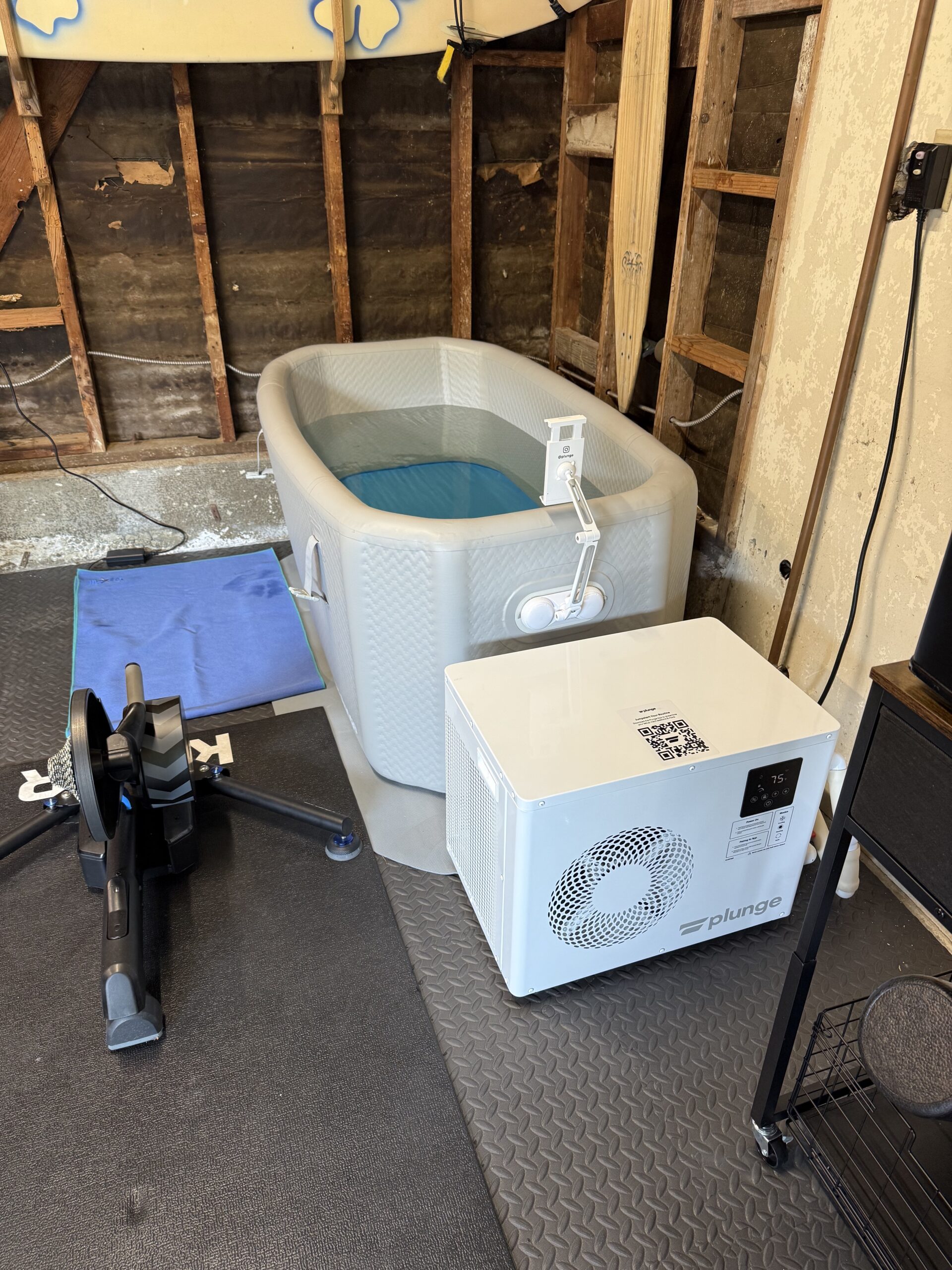
Should You Really Be Taking Supplements? A Functional Medicine Doctor Explains When, Why, and What Actually Matters
Supplements are everywhere.
The wellness world is flooded with powders, capsules, tinctures, patches, and “stacks” that promise better energy, glowing skin, sharper focus, or a longer life. A friend swears by one brand. Your social feed insists you need another. Another celebrity just made another new brand with even more aesthetic bottles. And before you know it, your kitchen cabinet looks like an overcrowded, overwhelming, underutilized version of what you hoped to be a carefully chosen, intentional and purposeful mini-apothecary.
Here’s the bottom line that I’d like you to read twice: Just because a supplement sounds like a good idea, doesn’t mean it’s a good idea for you. And taking more doesn’t necessarily make you healthier.
“Just because a supplement sounds like a good idea, doesn’t mean it’s a good idea for you.”
In my practice at Love.Life, I meet patients who are already taking an entire shelf’s worth of supplements before they’ve even had their first appointment, sometimes not even knowing why they bought that bottle in the first place. When we run their labs and talk through their health journey, we often find that they’re not just wasting money on things their body doesn’t need—they may actually be missing the nutrients they do.
So let’s get clear: Supplements can be an incredible tool for your health as well as managing and alleviating specific conditions and symptoms. But they’re not the starting point. They’re not a replacement for nutrition or lifestyle. And they’re definitely not one-size-fits-all.
Supplements aren’t the first step
I understand the appeal of a supplement stack. They can feel like a quick fix, an am and pm win, and a way to “do something” for your health when life feels busy or overwhelming. But in functional medicine, they’re never the starting point.
Instead, we begin by building a foundation of health that supplements can support, not replace:
- Daily movement to improve blood flow, nutrient delivery, and cellular health.
- Circadian rhythm support — getting morning sunlight, reducing bright light and screens at night — to optimize hormone balance and sleep.
- Nutrient-dense eating that prioritizes protein, healthy fats, colorful produce, and fiber.
- Stress management and connection — because chronic stress depletes your nutrient stores faster than you can replace them.
- Time outdoors to naturally boost vitamin D and regulate your internal clock.
These habits create the environment where your body can use any supplement to its full potential. Without these good habits, you’re asking a capsule to do the work of an entire lifestyle. And frankly, no supplement on its own is that good.
“Without these good habits, you’re asking a capsule to do the work of an entire lifestyle.”
It’s the difference between planting a seed in fertile soil versus in concrete — the quality of the environment matters just as much as what you’re adding in.
It’s also important to note that while the quality of your food matters deeply, food alone isn’t always enough. Even with the best diet, modern soil depletion, food processing, and absorption challenges mean we often need additional support. That’s where carefully chosen, high-quality supplements can play a powerful role.
Why testing changes everything
In functional medicine, precision matters. Supplementation shouldn’t be based on guesswork — it should be intentional and informed. Without testing, you’re just guessing. And guessing rarely leads to optimal health. You might get lucky, but you’re just as likely to waste time, money, and maybe even create new problems.
“Supplementation shouldn’t be based on guesswork — it should be intentional and informed.”
That said, not everything can be tested for — and that’s where your clinician’s expertise comes in. Some nutrients simply don’t have reliable lab markers, so deciding whether they belong in your regimen depends on your symptoms, history, and goals.
With my patients I’ll use comprehensive lab testing in addition to a thorough evaluation of medical history and lifestyle to understand exactly where their nutrient levels stand. Companies like Joi & Blokes also offer direct-to-consumer testing that can help you get a baseline, so you can supplement strategically instead of blindly.
And here’s a critical detail most people don’t realize: The timing of your lab draw matters. If you take supplements the night before (or morning of) your bloodwork — especially things like magnesium, vitamin D, calcium, or even electrolytes — your levels can look artificially high. That’s why I recommend pausing supplements for 48–72 hours before testing, so we see your true baseline.
Testing can reveal:
- Subclinical deficiencies — Nutrient gaps that aren’t yet causing obvious symptoms but still impact your health.
- Excesses — Yes, you can take too much of certain vitamins or minerals, which can be harmful. Timing also matters here.
- Patterns — Poor absorption, inflammation, or hormonal changes that affect your nutrient needs.
Absorption is an overlooked piece of the puzzle. I’ve had patients eating a pristine diet, working with a chef, tracking macros — yet their labs still show low vitamin D, B12, iron, magnesium, zinc, or more. In those cases, the question isn’t just “Are you getting enough?” but “Are you absorbing what you take?” Poor digestion, gut imbalances, and certain health conditions can all block absorption — which is why testing, working with an experienced practitioner, plus the insight of a registered dietitian or health coach, is so valuable.
“The question isn’t just ‘Are you getting enough?’ but ‘Are you absorbing what you take?'”
When you know your numbers — and your absorption status — you can work with a clinician to choose supplements in the right dose, right form, and right timing for you. Remember, the goal isn’t to take everything — it’s to take exactly what will move the needle for your health.
Your supplement needs aren’t static
One of the biggest mistakes I see is treating supplementation like a one-size-fits-all equation. If only our bodies — or our lives — were that predictable. The reality is, your needs will shift with your biology, your life stage, your goals, and the state of your health.
Supplements work best as targeted support during specific seasons of change or challenge — and they’re also used therapeutically with strong research to back their benefits for certain conditions.
For example:
- Fertility & Prenatal Prep often calls for methylated folate, choline, iron, and omega-3s to support egg quality, hormone balance, and fetal development.
- Perimenopause & Menopause may increase your need for vitamin D, magnesium, and bone-supporting minerals like calcium and vitamin K2.
- Athletic Performance can benefit from extra electrolytes, B vitamins, creatine, or amino acids to aid recovery, muscle support, and energy production.
- Chronic Health Conditions — such as autoimmune disease, gut health challenges, or metabolic issues — may require targeted nutrient repletion & immune support based on testing & symptoms.
Even within the same stage of life, no two people need the same protocol. I’ve worked with patients in their forties who look similar on paper but have entirely different supplement plans — one focused more on thyroid balance, another on gut repair, and another focusing on blood sugar control. The right choice depends on your unique body and what it needs right now. And of course, the conversation is certainly not just about supplements.
When supplements are worth it — and when they’re not
There are situations where supplementation is absolutely worthwhile. If you have a confirmed deficiency, if your diet or environment can’t provide enough of a certain nutrient, or if you’re navigating a major life transition like preconception, pregnancy, or menopause, supplements can be an crucial part of your toolkit.
“If you’re navigating a major life transition like preconception, pregnancy, or menopause, supplements can be an crucial part of your toolkit.”
But it’s just as important to know when they’re not worth it. Taking something because it’s trending, because it worked for your friend, or because it makes you feel like you’re doing something healthy — that’s often just expensive urine.
And intention matters. If you don’t know why you’re taking something, it’s worth pausing to ask. Is it supporting inflammation? Blood sugar? Liver detox pathways? Digestion? High oxidative stress? When you know the why, you’re more likely to take it consistently, at the right time, and in the right way.
The truth about supplement quality
It’s also worth noting: Supplements are not regulated the way pharmaceuticals are. That means purity, potency, testing, and label accuracy aren’t guaranteed.
“I strongly recommend brands that undergo rigorous third-party testing and have a solid reputation for quality.”
I strongly recommend brands that undergo rigorous third-party testing and have a solid reputation for quality. You shouldn’t choose supplements solely because they’re cheap or convenient to order online — especially from sources where you can’t verify their authenticity. Counterfeit and low-quality supplements are real problems, and they’re out there.
When in doubt, talk to your doctor about trusted brands, ingredient sourcing, and whether what’s on the label is actually what’s in the capsule.
How to supplement smarter:
If you’re wanting to supplement in a way that truly supports your health, here’s how I recommend you go about it:
- Build your foundation first — Prioritize sleep, nutrient-dense food, daily movement, and stress management.
- Test, don’t guess — Use functional lab work to understand your unique needs and discuss these with your doctor.
- Fill the gaps — Sometimes they’re obvious, sometimes they’re not, which is why testing and proper guidance matter.
- Layer in targeted support — Add only what’s necessary for your current goals, life stage, or health challenges.
- Reassess regularly — Your needs will change with age, seasons, stress levels, and health status.
Think of this as an ongoing conversation with your body. Nourish yourself with real food, sunlight, movement, and rest. Stay curious about your biology. Then talk to your doctor to choose supplements with precision and purpose, knowing exactly why you’re taking them and how they fit into the bigger picture of your health.
Your support system, not your shortcut
Supplements aren’t magic — but they are incredibly powerful when used in context. They can bridge the gap between where you are and where you want your health to be. Think of them as the fine-tuning, not the foundation.
“Supplements aren’t magic — but they are incredibly powerful when used in context.”
Most people don’t need more supplements — they need better strategy and a stronger foundation.
Your health isn’t defined by how many bottles line your counter. It’s shaped by the daily choices you make, how you support your body’s natural rhythms, and the decisions you make with the proper data & guidance. When supplements are chosen with precision and purpose, they become exactly what they’re meant to be: a support system — not a substitute. And for many people, the right ones can be a powerful confidence boost — knowing you’re giving your body targeted, effective support on top of an already solid foundation.
Dr. Jaclyn Tolentino is a Board-Certified Family Physician and the Lead Functional Medicine Physician at Love.Life. Specializing in women’s health and hormone optimization, she has been featured in Vogue, The Wall Street Journal, and Women’s Health. As a functional practitioner and a breast cancer survivor, Dr. Tolentino is dedicated to uncovering the root causes of health challenges, employing a holistic, whole-person approach to empower lasting wellbeing. Follow her on Instagram here for more insights.




